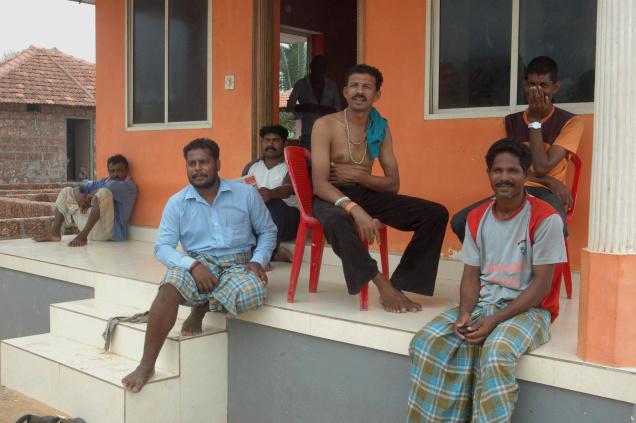
Ullal, June 13: They call it a hobby, but it's a hobby that has saved many lives. On June 23, 2007, when the Eritrean ship mv Den Den capsized off Thannirbhaviin the city, 20 fishermen resting on the beaches of Ullal jumped into action.
With nothing but their swimming trunks on, the members of Shivaji Jeevarakshaka Eejugarara Sangha (Shivaji Lifeguards Association) swam through choppy waters and reportedly saved or helped save 21 out of 24 sailors on board the vessel.
“The coast guard were present,” said Yeshpal K., one of those involved in the operation, “but, the seas were too rough for them to approach the ship. But, we are used to the currents of the sea, and using our experience, dragged 21 sailors safely to a boat.”
The deed did not go unnoticed by the then Governor T.N. Chaturvedi in Bangalore during the Independence Day celebrations.
Yatish Baikampady, the brain behind setting up lifeguard teams at Panambur beach and who was involved in the Den Den rescue operations, said the sangha and the local fishermen, who comprehend the complex oceanic terrain of the region, played an important role in rescue operations.
The idea
Members of the association said the idea started when senior fishermen in the area rescued people drowning in the sea and lakes nearby around three decades ago. Gradually, an organisation was formed in 1989 aimed at galvanising fishermen for rescue efforts.
More than 60 fishermen, mostly from the Mogaveerupatna area, now enlist themselves as members. However, in 2000, after their activities received funds from local people, the organisation moved from a thatched roof building to a solid concrete building on Ullal beach.
In their sangha office on Ullal beach, the lack of equipment is apparent. Apart from the lack of floating devices, the lack of transistors or walkie-talkies indicates their informal nature. “Sometimes, the Coast Guards or policemen call us. Most times, the villagers who see the person drowning, or beach-goers, inform us,” said Bharath Bangera, a member of the sangha.
“In the last decade, we must have saved more than 300 people. At least once a month, some one or the other is in danger on the beach,” said Kishore Putran, a member.
With a dargah and a temple nearby, Ullal is a popular picnic spot for pilgrims and those from Mangalore.
The seabed starts with a steep incline just a few metres from the breakwater level.
Although swimming is prohibited in the beach, with no police presence on most days, beach-goers tend to flout these rules. Here is when the sangha comes to the rescue.
Armed with nothing but experience, they've gone on to become the guardians of the beach.





Comments
Add new comment